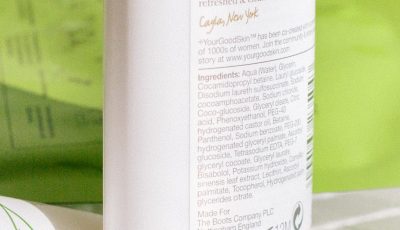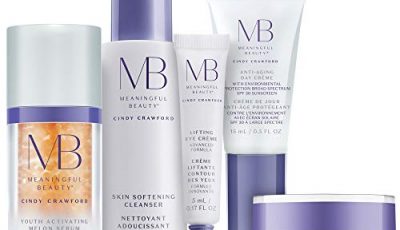Tips for Healthy Skin Care
Dry skin isn’t as simple to treat as it may seem. It may itch, it may be extremely uncomfortable, and it may leave red marks behind. In most cases, though, it’s treatable.
 For mild cases of dry skin, over-the-counter moisturizing creams and lotions and topical ointments containing moisturizers, lactic and emollient ingredients, and other soothing ingredients can give temporary relief. When used regularly, these lotions and creams can keep dry skin soft and supple.
For mild cases of dry skin, over-the-counter moisturizing creams and lotions and topical ointments containing moisturizers, lactic and emollient ingredients, and other soothing ingredients can give temporary relief. When used regularly, these lotions and creams can keep dry skin soft and supple.
If your dry skin gets too dry, though, more aggressive treatments are probably necessary. For extreme cases of dry skin, a dermatologist will prescribe a specialized dry skin cream or lotion that contains certain chemicals to help keep skin hydrated.
For severe cases of dry skin, a doctor may use a specialized dry skin laser, which treats dry skin at its source. These lasers are able to treat the skin at the source, eliminating any cause for the problem. Unlike regular skin care treatments, a dry skin laser doesn’t rely on moisture from the skin to work. The laser works by removing the top layer of dead skin cells, causing the skin beneath to rejuvenate and replace the lost moisture.
No matter what type of dry skin care treatment you’re using, make sure it contains the right ingredients. Avoid over-using topical creams or lotions as the skin may only absorb the cream, leaving the problem untreated and worsening it.
It’s also important to note that just because one ingredient in an over-the-counter moisturizer or dry skin care treatment can work well for one person, that doesn’t mean it will work for another. Some ingredients, such as those containing vitamin E, can actually cause skin dryness and irritation if used excessively.
To ensure that the product you choose works best with your skin, read the label carefully to see what ingredients it contains. Remember, some skin care products are specially formulated to target specific types of skin such as oily, normal, dry, or combination.
After using dry skin care treatments, don’t forget to hydrate yourself with plenty of water so the skin can keep its natural moisture levels. and to avoid becoming dehydrated.
The skin care routine you’re using depends on what type of dry skin you have. Your doctor will help you decide what type of treatment is the best for you. If you do not have a dermatologist, consult with a skin care professional to help you make a plan of action.
Dry skin care also includes moisturizing the skin before going out in the sun. This helps prevent damage to the outer layers of skin and keeps the skin healthy.
Always read the label
Always read the labels of the skin care products you choose, so you know exactly what you’re putting on your skin. When applying any skin care treatment to the face, use a cotton ball and clean fingertips to apply the product to the skin, working downward. so you spread the product evenly.
Avoid sunscreen lotion that contains oils or alcohol
Don’t use any sunscreen lotion that contains oils or alcohol, even the sun screen type. Sunscreen lotions and creams are too greasy for the face and can clog pores.
Avoid excessive use of skin care products
Don’t overuse skin care products, because this can cause more problems than it solves. When using skin care products on sensitive skin, always follow the manufacturer’s directions and cleanse your face well before and after each use.
Wash your face twice daily
The best way to get rid of skin flakes and other skin problems is to wash your face twice daily, at least once with a facial cleanser and once with a moisturizer. This way, the skin stays hydrated and keeps it looking and feeling young and supple. After cleansing, pat your skin dry with a soft towel and pat a few times with a clean towel to remove excess oil.
Diet is important for dry skin care
Don’t forget your diet when looking for dry skin care. Eat foods that are rich in vitamins, especially vitamin A and E. These will help reduce the amount of skin that becomes dry.





